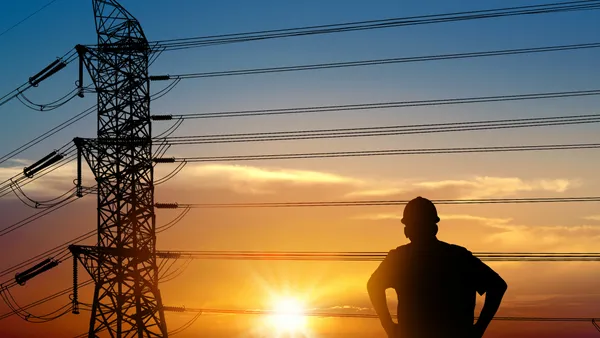Dive Brief:
- New York utility regulators on Thursday wrapped up two weeks of public comment sessions, hearing hours of testimony from customers who say gas and electric rate increases proposed by Consolidated Edison are unreasonable and could force vulnerable populations to choose between energy and food.
- ConEd in January proposed single-year new revenue requirements that could raise electric bills 11.2% and gas bills by 18.2%, depending on customer class. The utility says higher rates are necessary to add clean energy resources and boost system reliability.
- Some kind of rate settlement will likely mean ConEd doesn't get the full increase, said Natural Resources Defense Council Senior Attorney Christopher Casey. "But anything that's getting into double-digits is a really big rate increase," he said, and customers could see bills go up this fall.
Dive Insight:
New Yorkers have fallen further behind on utility bills during the pandemic, with total energy arrears of about $1.8 billion, according to January data from the state's Public Service Commission. That's more than twice the total before the pandemic, observers say.
"A lot of that is the result of the pandemic, and customer protections put in place," said Casey. New York passed a service-shutoff moratorium in 2020 but utilities may resume disconnections this spring.
There have been calls for some of the debt to be forgiven, particularly as vulnerable residents in New York City struggle. And advocates say raising rates even more will exacerbate issues of energy burden.
The proposed increases "are an unbearable burden, forcing New Yorkers to choose between heat and food, and driving the most vulnerable into homelessness," Kim Fraczek, director of Sane Energy Project, said in a statement. More than 400,000 ConEd customers have utility debt, she said.
The PSC heard public comment in six listening sessions from March 22-31. Customers discussed bills that reached thousands of dollars, choosing between utilities and other essentials, and delivery charges that outstripped energy costs. There were calls for ConEd to instead find ways to decrease bills.
“Asking my constituents to swallow a dramatic, single[-]year increase to their electric and gas bill is unreasonable when they already pay nearly 50% more than the average U.S. household," Rep. Thomas Suozzi, D-N.Y., wrote in letter to the utility.
ConEd says its filing proposes to fund clean energy investments necessary to meet New York state’s climate goals, which include reaching 70% renewable energy by 2030.
The utility said in a statement the proposal would "continue unprecedented investments in energy efficiency, renewables, electric vehicles and clean heat." The proposed new rates would also provide benefits for vulnerable customers, ConEd said, including ownership of 200 MW of new solar generation as part of a 1 GW initiative to reduce bills for low-income customers.
On the electric side, the proposal includes building new transmission lines ConEd says will enable it to retire polluting fossil fuel resources and developing a portfolio of heating electrification programs. On the gas side, the plan includes continuing to replace more than 85 miles of distribution pipeline each year — but that may be a contentious point in the proceeding.
"We have serious questions about whether that's the best way to meet our goals, or whether there's an ability to use non-pipeline alternatives and figure out ways to transfer customers who are currently using gas to electricity," said Casey.
"With this proposal, the utilities are telling us that they have no intention to transition away from building out the gas infrastructure that we know is not serving our communities," Alliance for a Green Economy Deputy Policy Director Avni Pravin said in a statement. "We need the Public Service Commission to address the energy debt crisis and climate crises ... and we need to start taking concrete steps towards a publicly-owned renewable energy system."
The PSC has set a schedule with staff and intervenor testimony due May 20, and an evidentiary hearing beginning in July.
"My best guess right now is that we'll see a resolution of this case sometime over the summer, with [the] implementation of rates in the fall," said Casey.















